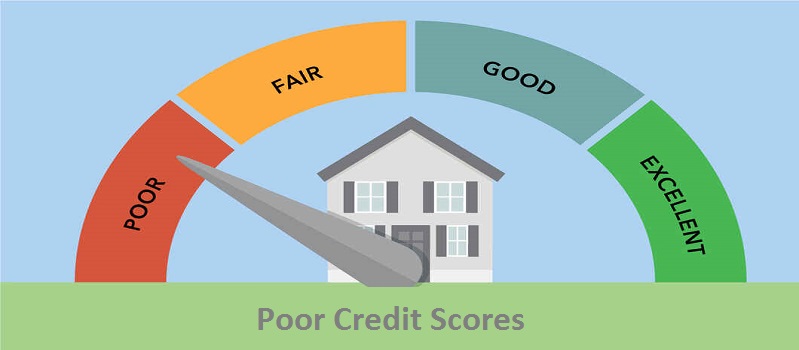Insolvency is the biggest nightmare for any business. It creeps up slowly and hits a business shockingly.
Looming insolvency doesn’t necessarily signal the end of your entrepreneurial dreams. Recognising these and acting quickly can help improve the situation.
What Is Implied by Business Insolvency?
Insolvency implies when a business can no longer pay its debt. This may include compensations, salaries, pending client invoices, etc. These are illiquid assets. Cash flow insolvency can be sorted out at par by requesting a debt closure extension. In this, the business waits to pay the debts until the business situation improves.
Another type of business insolvency is balance sheet insolvency. In this, the total valuation of your company’s debts. These debts include high-interest credits like loans without a guarantor from a direct lender exceeding total assets (liquid or otherwise). You may have enough cash to pay some small bills, but not to creditors. In this situation, stopping trading immediately and addressing the insolvency issue is ideal.
What Reasons Could Make a Business Insolvent?
No business owner plans exhausting business assets leading to insolvency. Some immediate decisions, cash reserve negligence, or massive business loss may provoke insolvency.
For example, delaying the vendor’s payment highlights the beginning of the company’s insolvency.
Here are some most common factors:
- Cash flow crisis caused by unexpected tax bills or equipment purchase
- Too many high-interest debt repayment failures. It impacts the business’s cash reserve.
- Increased competition
- Insufficient capital
- losing customers to other businesses
- Lack of advanced techniques to attract new customers
- Chasing other sources of revenue instead of “expertise”.
- Key employees are leaving the firm.
Any combination could trigger insolvency fumes with the company’s finances taking a back seat. Are you facing any of these?
Best Strategies to Save Your Business from Insolvency
You may manage your invoices just right or pay the pending debts; still, insolvency fear looms in. Take immediate steps and ensure immediate control over your finances.
Check out these ways that can help manage business finances and operations adequately.
1. Seek impartial advice from experts
If you face a collision of ideas and strategies in business, it is ideal to consult an expert advisor. Facing difficulty in agreeing upon a decision mutually lays the foundation for insolvency. The collision of ideas in drafting a sound business strategy is the major cause behind the business falling off.
Talk to a bankruptcy advisor and resort to different ways to save your business from insolvency. Ask questions and evaluate all the pros and cons of any business decision.
Analyse how you can save your company from the existing insolvency situation. How can you transform business operations and marketing ethics to boost business sales?
2. Sell lease equipment and other business assets
If you have the equipment or furniture you hardly use, sell them to collect some money. Post that, buy any equipment on lease. It allows you to pay in a lump sum instead of paying the complete amount upfront.
In this way, leasing helps you manage cash flow and ensure stabilized business. The best part is, in leasing, you can switch to the in-trend technology and tools without waiting to purchase them. After the end of the lease period, you can return the equipment.
3. Talk out things with your creditor
If things work out no more and you face struggles making repayments for loans without a guarantor from a direct lender, inform him. The creditor may consider your current situation and suggest workable measures.
He may either issue forbearance or halt the loan repayments. It is until business financial recovery or revises the repayment terms or interest rates. Do not hide anything from the lender. Narrate the situation as-is.
4. Seek Company Voluntary Arrangement (CVA)
Sometimes, informal and open conversations with lenders do not work, regardless of the previous friendly business relations. One reason for this tension between the debtor and creditor relationship is -insecurity.
If you see no hope of the argument ending in a truce, involving a well-read insolvency practitioner becomes critical. An insolvency practitioner helps negotiate with the lender. He instils faith among creditors in your company’s ability to repay the amount.
The Company Voluntary Arrangement helps restructure your company’s wealth. It assists creditors in receiving the agreed portion of their money every due date.
A CVA is a formal insolvency process that acts as a legally binding payment plan among the insolvent company and creditors. The agreement lasts for 2-5 years. Within this time frame, it provides immense opportunity for businesses to regain control over finances and other operations.
5. Work on reducing operational costs
If your business struggles to make a living, work on slashing the business expenses and costs. Cut all unnecessary expenses from reducing the workforce to analysing your fixed expenses. While considering parameters for reducing the company’s expenses, consider:
- Ensuring work from home instead of renting an office space
- Limit outsourcing your business operations; outsource only the important and time-bound ones
- Revise staff perks
- Automate repetitive tasks and save costs
How Does Quickloanlender Help Evade Insolvency Fears?
QuickLoanLenders helps businesses provide the best financial assistance. It evaluates the business loan affordability, company’s finances, business assets and business plan. If your business is experiencing bad credit blows, do not worry.
The expert loan providers help your situation. They suggest the best active move for your business:
- To avoid insolvency
- To maximise your business potential for flexible borrowings
You are facing a financial crunch in business or share limited assets to secure a loan. The experts walk through a simple and affordable repayment plan. The lenders share in-house expertise in dealing with businesses needing immediate cash on bad credit or nil capacity.
Sometimes, you just need the right direction to make the next move. This is along with searching for funding sources for your business.
We ensure the most comfortable borrowing to the best of our capacity. We offer loans at the lowest interest rates possible and flexible repayment plans (6, 9, and 12 months). It helps business owners view essential business aspects. You share the freedom to take back the loan agreement within 15 days.
Bottom line
Business insolvency isn’t something that could be avoided entirely. Cash management and business decisions hold the crust leading to insolvency. If you are seeking ways for loan management or ensuring ease of repayments, you can contact QuickLoanLenders.

Emma Anderson is a financial advisor at Quickloanslender who always believes in researching hard to know her clients’ financial problems. She takes the time to understand their financial wants and needs to write the blogs on them as the solutions. In her long 14 years of experience, she has written plenty of blogs on the financial and business sectors of the UK.
Emma Anderson has been recognised for her work in financial planning and her blogs are regularly published in the website of Quickloanslender. As far as her educational qualification is concerned, she has done Masters in Accounting and Finance, and done PG Diploma in Creative Writing.






